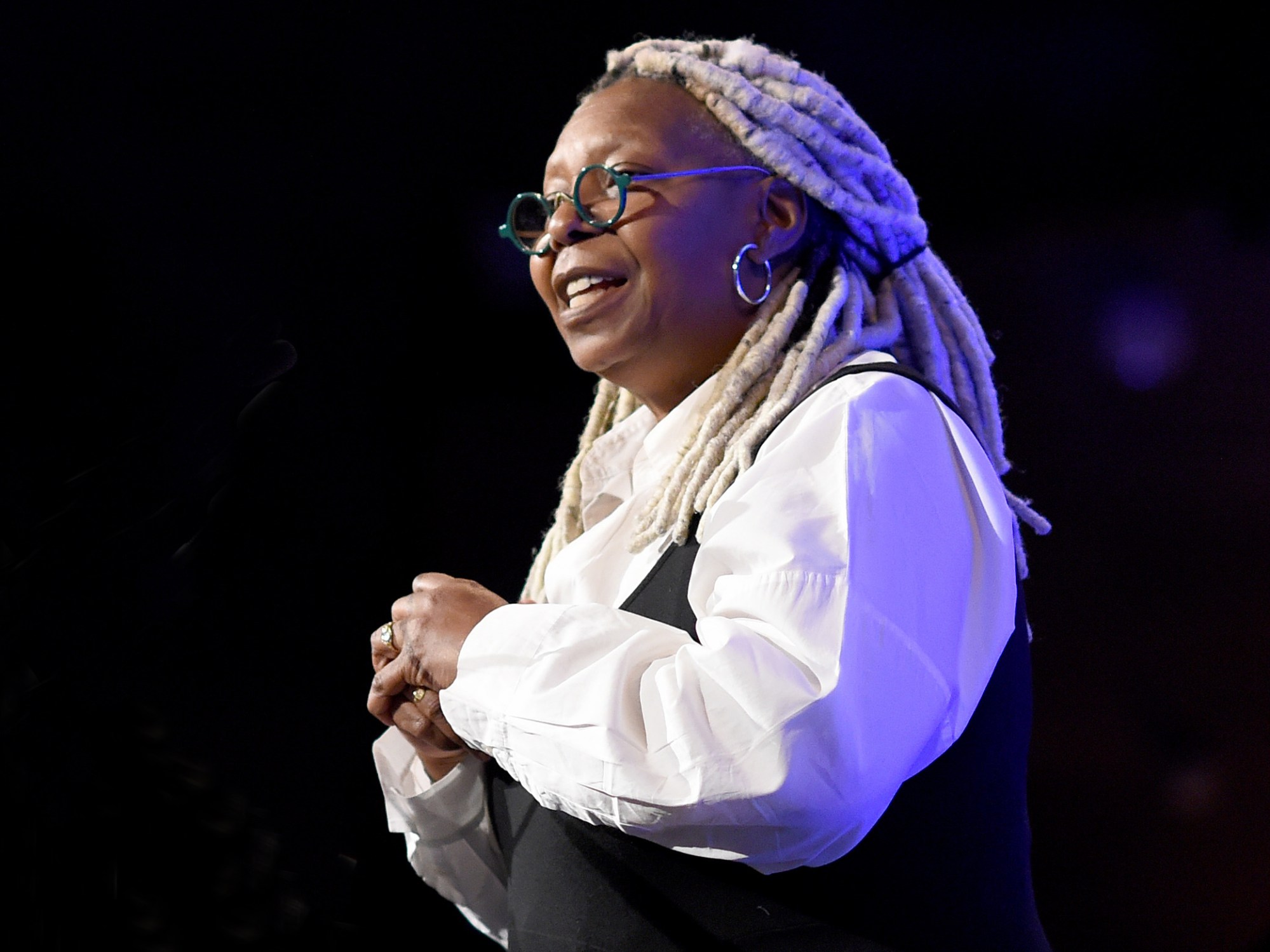
- Interviews
Whoopi Goldberg on Racism, Inequality and What Cinema Can Do About It
a fitting term for Whoopi Goldberg, twice a Golden Globe winner for The Color Purple (in 1986) and Ghost (1991 – also an Oscar), the first woman to host the Academy Awards, in 1994, social and political activist since the Comic Relief era and now a TV personality and very vocal both in the #MeToo and Black Lives Matter movements. And she is truly irrepressible wielding the resolve that led her to send an Instagram message to Pope Francis: “Good morning Your Holiness,” she wrote. “Please forgive me for reaching out like this. I was talking to a friend of mine who is an Irish priest with a black parish. He’s in a lot of pain because he feels that the Church has not said anything definitively about standing with its parishioners and saying yes, black lives matter, brown lives matter.” And she went on: “I wonder if there was something you might be able to do to send the message that the Catholic Church knows black lives matter … and that there is no difference between a black Catholic and a white Catholic and a Hispanic Catholic, that everyone that God has in his hands, matters.” We spoke with her over teleconference as the Black Lives Matter protests engulfed the country. The occasion was her receiving the Tulipani di Seta Nera festival AwardFirst of all, Ms. Goldberg, where are you in this crazy time of the pandemic?
How important is cinema to cultural growth, in your opinion?
It’s been 35 years since The Color Purple a film that had a very strong message. Does that movie still speak to today’s generations?
The Color Purple affects people for different reasons. I have met people who said she was me: she was someone I knew, or I felt that way, or I wanted to be free like her, I wanted to be better, I miss my family. People of all colors, of all shapes and sizes, connect to this movie because of that character; you could do this movie with black women, yellow women, white women, everybody and the story stays the same. It is not necessarily about a black woman; it is about a woman. And so, I think she is universal, which makes me doubly lucky for me that it was my first film! Sister Act also touched women. Nuns who dedicated themselves to God.
Do you think film will be able to help eradicate racism in language and behavior once and for all?
I wonder if you can comment about what you felt when you saw the horrific images of George Floyd and then the uprising, the demonstrations.
And because of that, all over the country, people of color got the right to vote. This is the same thing. People are seeing a lot of black people getting killed for really no reason, just being gunned down in the street. And like George Floyd, there was no way you could ever justify that, that is not what we want police to be doing in any country. I like policemen, I like them a lot because when they do their jobs, they are amazing, they keep people safe, they keep everything going. But we have somehow gotten away from what police should be doing in a community, wherever they are in the world, people shouldn’t be afraid of the police, those days are done, we don’t have to be afraid. Everybody wants a change. And it’s fantastic. So, I am a crazy optimist, because I do believe the best in people.
What are you working on now and what is happening, is there a project that you are starting or working on now?
(laughter) And I just finished a TV series based on a Stephen King book called The Stand. And I am ready to go to Italy to shoot a series of blogs. As I said I was about to leave when the pandemic started. Now I can’t wait to go!